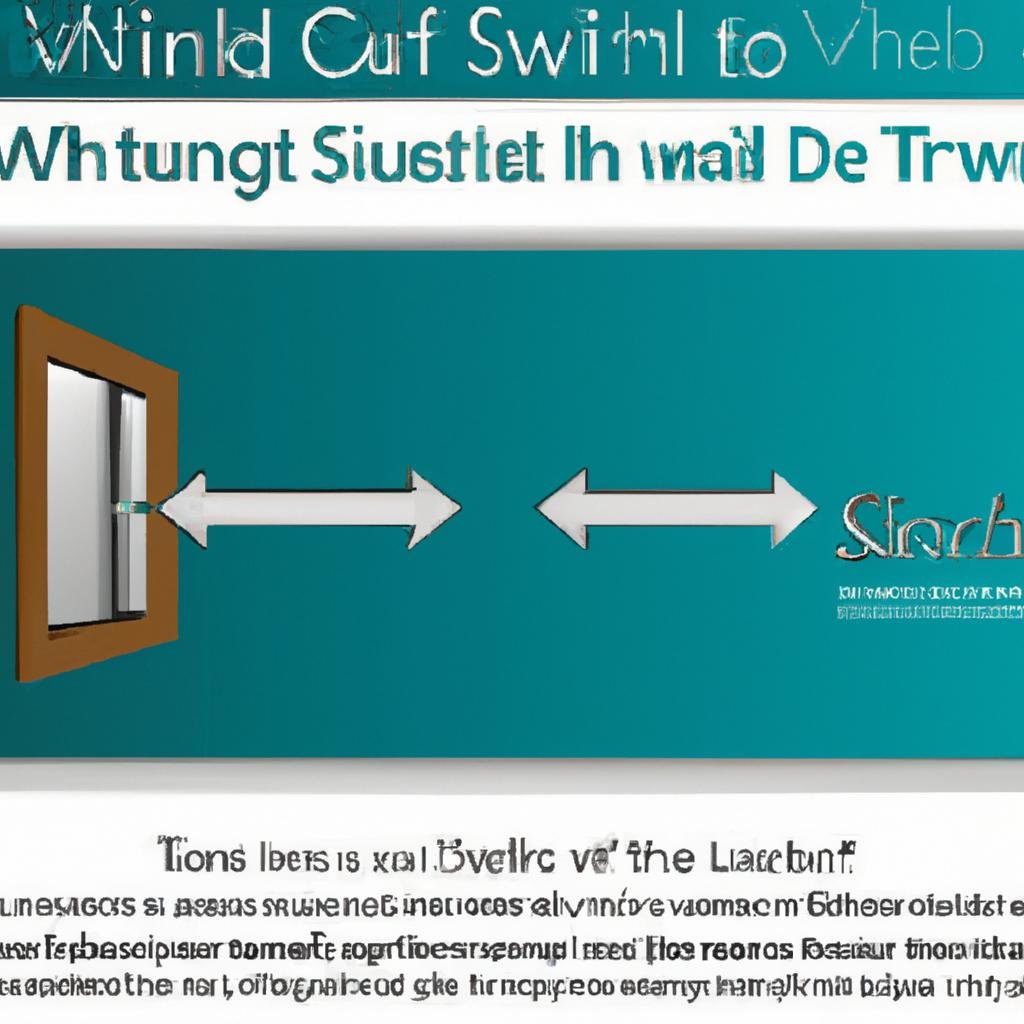Picture a blistering summer day, the sun blazing relentlessly, the heat penetrating every corner of your home. A day when your beloved, overworked AC unit is your only savior. Imagine that day and ask yourself – “Should I put my faith in a window unit or a split unit to come to my rescue?” For those looking to relax in a cool oasis amidst the soaring temperatures, the quest to find the most efficient air conditioning system is an enduring one. Today, dear readers, we turn our focus to one of the most contested debates in the realm of home comfort – Is a split unit really more efficient than a window unit? So sit back, grab a glass of iced tea, let the cool breeze blow against your face, and let’s delve into the pros and cons, the trials and tribulations, the efficiencies and inaccuracies of these two popular cooling knights of our households.
Understanding the Difference: Split Units vs Window Units
Many of us often find ourselves in the conundrum of choosing between split units and window units. Both options serve the same purpose, yet they differ greatly in terms of operation, installation, and efficiency. Understanding these differences can greatly affect your comfort, electricity bills and even the aesthetic appearance of your home.
Primarily, split units consist of two parts: an outdoor condenser and an indoor air-handling unit. They’re known for their quiet operation and superior energy efficiency compared to window units. They can also cool large areas effectively and provide more flexibility in temperature management. However, they usually come with higher upfront costs and require professional installation.
- Window units, on the other hand, are compact, consisting of a single unit that sits in your window. They’re generally much easier and cheaper to install as they don’t need any ductwork. However, there’s a trade-off as window units typically consume more energy and can be noisy. They’re most suitable for cooling small spaces.
| Aspect | Split Unit | Window Unit |
|---|---|---|
| Installation Cost | High | Low |
| Operation Noise | Low | High |
| Energy Efficiency | High | Low |
| Area Coverage | Large | Small |
So, is a split unit more efficient than a window unit? Generally speaking, yes. But it’s not as simple as one being ‘better’ than the other. Deciding between a split unit and a window unit should be based on your specific needs, considering factors like your budget, the area to be cooled, and noise tolerance. In a nutshell, window units might win on price and convenience, while split units tend to lead on efficiency and performance.

Diving Deeper: Efficiency and Performance of Split and Window Units
When it comes to cooling down your home efficiently, there are several factors to consider. First, you must look at the unit’s size. A unit that’s too large for a room will quickly cool down the space but won’t dehumidify it effectively. On the other hand, a unit that’s too small will struggle to cool down the area, wasting energy in the process. This is where split units generally excel. They are more flexible in terms of matching size requirements with several indoor units that can be connected to one outdoor unit.
- Energy Consumption: Split units usually have a higher Seasonal Energy Efficiency Ratio (SEER) than window units, which means they are more energy efficient. They also have the advantage of zone cooling, where you can only cool rooms that you are actually using, leading to significant energy savings.
- Performance: In terms of cooling capacity, split units are typically more powerful with better airflow, providing more consistent temperatures. Additionally, they operate more quietly than window units, leading to a more comfortable home environment.
- Maintenance: Although split units have more complex installation and might be more costly upfront, their maintenance is simpler and less frequent compared to window units. You only need to clean or replace the filters occasionally, and professional maintenance can be performed less frequently.
| Split Unit | Window Unit |
|---|---|
| More energy efficient | Less energy efficient |
| More powerful cooling capacity | Less powerful cooling capacity |
| Simpler and less frequent maintenance | More common and demanding maintenance |
while both split and window units have their pros and cons, split units seem to edge out in terms of efficiency and performance.

Split and Beat: Why Split Units May Be Your Efficiency Hero
When we talk about energy efficiency and cost-effectiveness in HVAC systems, split units often reign supreme. As opposed to window units, these types of air conditioners are designed to offer superior cooling and heating versatility. They consist of two primary components: a compressor that stays outside the house and an air-handling unit that is installed inside. This separation of units ensures that heat does not return to the room, hence minimizing energy wastage. Plus, thanks to their ductless design, they prevent energy loss associated with ductwork in central systems.
Let’s take a closer look at why split units can be your efficiency hero:
- Increased Energy Efficiency: Because they can cool specific zones, split units consume less energy. Since they can be independently controlled, you only switch on the units when necessary, saving energy.
- Easy Installation Process: Unlike window units or central systems, split units do not require major installation work. You only need a small hole for the conduit, which makes them a less invasive choice.
- Reduced Noise: Because the compressor (the noisiest part) is located outside, split units are remarkably quieter.
| Split Unit | Window Unit |
| Higher Energy Efficiency | Lower Energy Efficiency |
| Quieter Operation | Noisier Operation |
| Flexible Installation Options | Limited Installation Options |
If you value energy efficiency, comfort, and quiet operation, then it’s easy to see why a split unit could be your perfect HVAC solution. They might require a little more upfront investment, but their long-term benefits are simply unmatched.

Making the Switch: Guide to Transitioning from Window Units to Split Units
If you’re pondering a switch from window units to split units, you’re likely focused on efficiency. So, is a split unit more efficient than a window unit? Truthfully, it’s a resounding yes. Split air conditioning units can be a significantly more energy-efficient alternative to traditional window units, resulting in considerable savings on your household electricity bills.
What makes split units more efficient? Let’s dissect a few factors:
- Better cooling distribution: Split air conditioning systems are designed to efficiently distribute cooled air, reducing energy waste. Unlike window units, which only pump air in one direction, split systems circulate air throughout the room evenly.
- Less energy loss: Window units tend to allow cool air to escape outside, reducing their efficiency. This problem doesn’t exist with split systems, as only small, sealed holes in the wall are needed for the conduits.
- Flexible installation: A split unit system can be installed in multiple locations in your home, not just a window. This flexibility aids in achieving the optimal cooling effect for your home, leading to better energy efficiency.
Let’s compare the average efficiency of window units and split units in the following table:
| Unit type | Average Energy Efficiency Rating (EER) |
| Window Unit | 9-10 |
| Split Unit | 14-16 |
if efficiency is a deciding factor for you, a split air conditioning unit is a worthwhile investment. Despite the initial higher cost, this system can bring long-term financial benefits through reduced energy consumption and lower electricity bills.
Q&A
Q: Hey there buddy, what’s this split unit you’re talking about?
A: Ah, glad you asked! A split unit, also known as a ductless or mini-split system, consists of an indoor unit and an outdoor unit. It’s a type of air conditioner that’s an excellent cooling option for homes.
Q: Interesting, and what about the old faithful, the window unit?
A: Excellent question. The window unit, a single device installed in a window or a hole through an exterior wall, is traditionally the most common type of air conditioning system found in many homes.
Q: Let’s get down to brass tacks: is a split unit more efficient than a window unit?
A: Indeed, it typically is. Split systems, which provide both heating and cooling, are designed for greater energy efficiency. They can cool individual rooms to the desired temperature, which helps to reduce energy waste.
Q: Wow, why is it so, my friend?
A: Well, split units avoid the energy losses associated with ductwork, which can account for more than 30% of a home’s energy consumption for space conditioning. Plus, you have more control over cooling specific rooms, minimizing waste.
Q: Interesting, but what if my budget needs to be friendly, just like us chatting here?
A: Good point! While split units can be more efficient in the long run, they might be more expensive initially than window units. So, it’s a balance between upfront costs and long-term energy savings.
Q: Got it! Any other perks of choosing a split unit?
A: Oh, definitely! Apart from efficiency, split units are usually quieter, offer better air distribution, and don’t obstruct your window view. So, a lot of good stuff is packed into this choice!
Q: Thanks a ton for the enlightening chat. Any parting words for our lovely read?
A: Just one: choose the type of unit that best suits your needs, space, and budget. Always remember, the choice between a split unit and a window unit is never a one-size-fits-all situation. Cheers!
Closing Remarks
And so, as the sun sets on our exploration of split and window air conditioning units, we find ourselves a little more informed, a little bit cooler, and a bit clearer on which system might best answer our search for efficiency. Maybe you’re applauding the endearing window unit that’s been cooling you off since you can remember, or perhaps the stylish, energy-saving split unit has charmed your socks off. Whichever path you choose, remember – efficiency isn’t just about the cool air filling your space, but also about the space you make for sustainability and utility bills in your life. Stay cool, my friends, stay informed and make the choice that’s right for you. Until our next foray into the world of home comfort, goodbye and keep it breezy!

